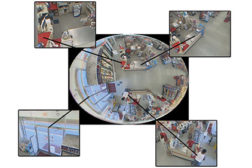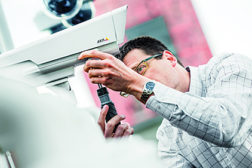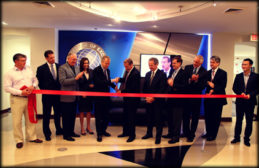Articles by Derek Rice
Video Transmission & Power Management 101
Understanding and knowing how to evaluate the various technologies and products ensures the performance and reliability of video surveillance systems
November 9, 2014
Easing Up IP Installations
While IP camera installation isn’t as simple as integrators would like, manufacturers are hearing their wishes and working to make them come true.
April 24, 2014
Be in the forefront of security intelligence when you receive SDM.
Join over 10,000+ professionals when you subscribe today.
SIGN UP TODAY!Copyright ©2025. All Rights Reserved BNP Media.
Design, CMS, Hosting & Web Development :: ePublishing








